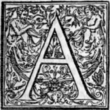
TO THE COURTEOUS
READER.

Lthough the ancient Heathens did appropriate the first invention of the knowledge of Herbes, and so consequently of physicke, some unto Chiron the Centaure, and others unto Apollo or Æsculapius his sonne; yet wee that are Christians have out of a better Schoole learned, that God, the Creator of Heaven and Earth, at the beginning when he created Adam, inspired him with the knowledge of all naturall things (which successively descended to Noah afterwardes, and to his Posterity): for, as he was able to give names to all the living Creatures, according to their severall natures; so no doubt but hee had also the knowledge, both what Herbes and Fruits were fit, eyther for Meate or Medicine, for Use or for Delight. And that Adam might exercise this knowledge, God planted a Garden for him to live in, (wherein even in his innocency he was to labour and spend his time) which hee stored with the best and choysest Herbes and Fruits the earth could produce, that he might have not onely for necessitie whereon to feede, but for pleasure also; the place or garden called Paradise importing as much, and more plainly the words set downe in Genesis the second, which are these; Out of the ground the Lord God made to grow everie tree pleasant to the sight and good for meate; and in the 24. of Numbers, the Parable of Balaam, mentioning the Aloe trees that God planted; and in other places if there were neede to recite them. But my purpose is onely to shew you, that Paradise was a place (whether you will call it a Garden, or Orchard, or both, no doubt of some large extent) wherein Adam was first placed to abide; that God was the Planter thereof, having furnished it with trees and herbes, as well pleasant to the sight, as good for meate, and that hee being to dresse and keepe this place, must of necessity know all the things that grew therein, and to what uses they served, or else his labour about them, and knowledge in them, had been in vaine. And although Adam lost the place for his transgression, yet he lost not the naturall knowledge, nor use of them: but that, as God made the whole world, and all the Creatures therein for Man, so hee may use all things as well of pleasure as of necessitie, to bee helpes unto him to serve his God. Let men therefore, according to their first institution, so use their service, that they also in them may remember their service to God, and not (like our Grand-mother Eve) set their affections so strongly on the pleasure in them, as to deserve the losse of them in this Paradise, yea and of Heaven also. For truly from all sorts of Herbes and Flowers we may draw matter at all times not only to magnifie the Creator that hath given them such diversities of formes, sents and colours, that the most cunning
Worke-
